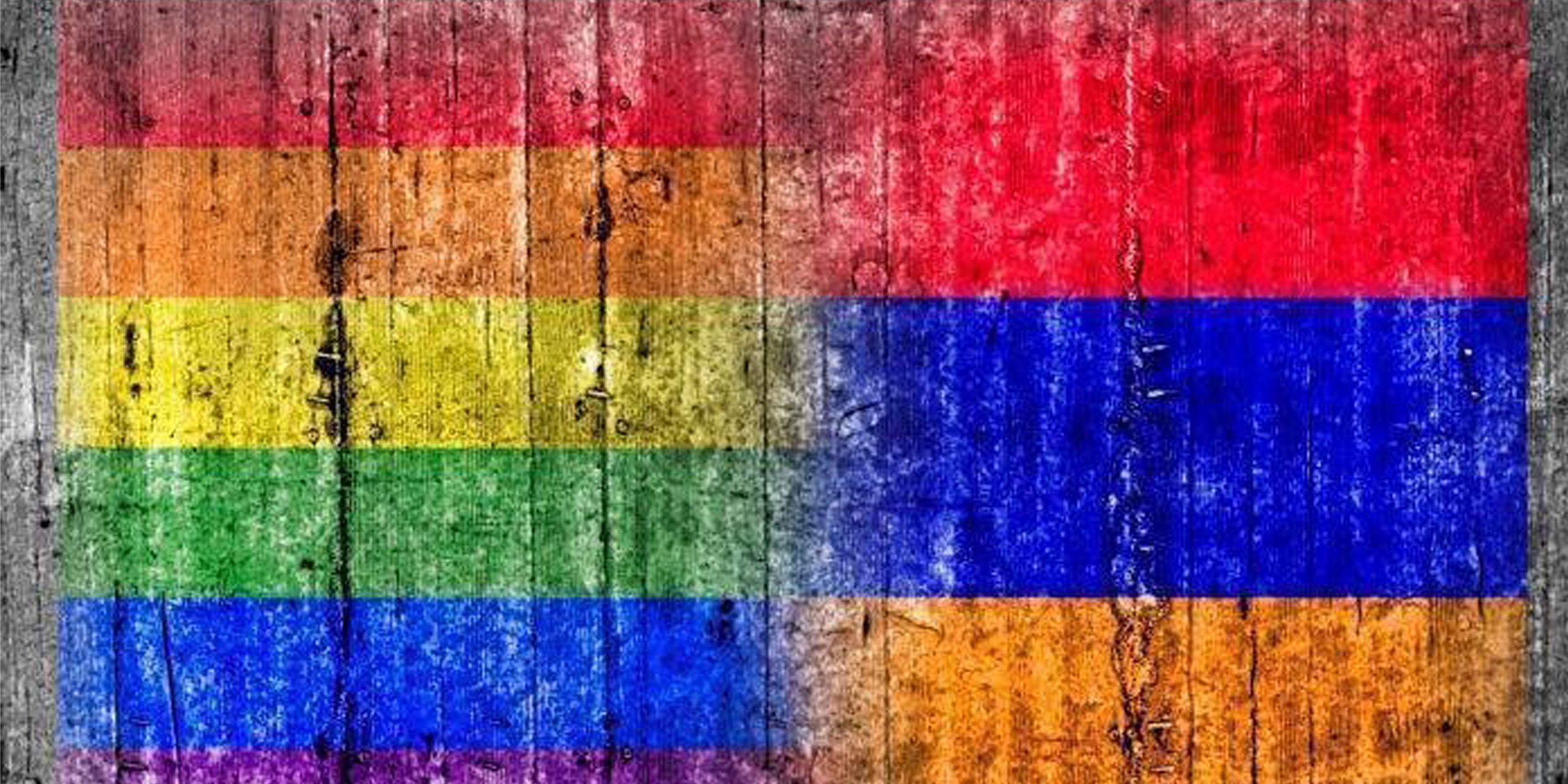
Protection of the Rights of LGBTI people in Armenia
Due to the Covid-19 epidemic, different countries around the world are focusing their resources on overcoming health and social-economic problems. Armenia is not an exception. In our country also various measures are being taken to neutralize the results of the pandemic but in the current state of emergency the protection of the rights of vulnerable groups has been pushed to the background. On one hand the meaning of the word “vulnerable” has been narrowed focusing mainly on the elderly people, on the other hand everyone has become vulnerable to the pandemic. However, at the end of the tunnel there is light. According to the forecasts of the advanced research centers, the infection vaccine will be found sooner or later.
And what about a vaccine against hate? Well, basically it has been around for a long time but some organisms do not accept kindness and tolerance․ As a result, hatred causes complications, infects the body and spreads like an acute infectious disease. However, no emergency measures are taken at the state level and somehow hatred becomes common. For example, LGBTI people (lesbian, gay, bisexual, transgender, intersex) face it at every step, from their own family to medical institutions and schools.
Nare Hovhannisyan, President of the Center for Legal Initiatives NGO, Sergey Gabrielyan, President of New Generation Humanitarian NGO, Arman Sahakyan, Alina Mirzoyan and Anahit Mkrtchyan, employees of the same organization unanimously state this. According to our interviewed human rights activists, the stigma and discrimination rooted in the Armenian society, the legislative gaps and the state’s evasive policy create fertile ground for hate speech to strike roots. And not long after, the speech becomes an action, a case, sometimes a criminal one.
For example, a few months ago, homophobic members of the Kamq initiative group, who were collecting signatures against the ratification of the Istanbul Convention on the busy streets of Yerevan and the regions of Armenia, were not satisfied with extorting signatures from passers-by through manipulative tricks. A criminal case was filed against “devoted fighters” of national values for beating peasants during a petition.Of course they couldn’t deviate from the traditional “Listen to the elders but also beat them” morality. Although, to be honest, they deviated a little, beating also a young boy. The “gentlemen” managed to hit and curse a girl as well.
In another case a half-naked young man, imbued with “traditional” values, poured no less traditional “Brilliant green” on one of the participants of a self-made group performing in the Republic Square, who in his opinion was a satanic lesbian. Then the young “chemist”, who is also an аnti-Semite, held a press conference during which he described in details the recipe of the solution with “Brilliant green”, the method of preparation and the peculiarities of its use. During the same press conference, a video was mentioned, from which it can be concluded that the young man, who stands out with his exhibitionist tendencies, is a latent homosexual who tried to dispel possible doubts about his orientation with an unexpected green attack. However, for the same purpose, he threatened human rights activists, particularly New Generation and Pink organizations’ employees, while slandering them for paedophilia and for perverting minors.
Although the Velvet Revolution was a step forward in terms of human rights protection, unfortunately such disgusting things continue happening in the post-revolutionary period. Moreover, Sergey Gabrielyan, President of the New Generation Humanitarian NGO, emphasizes that the hate speech and propaganda of violence have gained new intensity after the revolution. According to Alina Mirzoyan, the project coordinator of the same organization, this is explained by the fact that the former Armenian authorities use any issue related to the LGBTI community as a manipulative tool to set the society against the current government.
The mass media and online platforms ran by some opposition circles are flooded with calls for violence and threats․ And people often swallow the bait without doubting that the topic is being manipulated for purely political reasons. And because the unwritten laws of the “thieves’ world” (prisons) continue remaining relevant outside of penitentiary institutions, people who have normal human contact with members of the LGBTI community, especially human rights activists, are often identified with them and treated in the same discriminatory way.
Touching upon this issue, Alina Mirzoyan refers to the developments related to the forum of LGBT Christian groups that should have taken place in Armenia in 2018. The forum was canceled due to threats, hate speech, calls for violence as well as physical manifestations of these threats and calls against LGBTI people and human rights activists dealing with their issues. One of the main targets of these calls was New Generation Humanitarian NGO as the host organization of the forum in Armenia. The beneficiary groups of the organization also did not stay free from threats. All this led to temporary suspension of the activity of New Generation Humanitarian NGO.
Our interviewed human rights activists claim that the above-mentioned challenges can be overcome only with a comprehensive approach. As homophobia often comes from misconceptions and low level of awareness, first of all it is necessary to implement educational activities in the Armenian society in order to raise public awareness on this sensitive topic.
In parallel, legislative gaps need to be filled. Although the Armenian draft law on “Ensuring Equality before the law” has been in circulation since 2018, it has not been adopted yet. Human rights activists Sergey Gabrielyan and Nare Hovhannisyan consider the bill to be incomplete stating that there are no provisions prohibiting discrimination based on sexual orientation and gender identity. In addition, the law enforcement system often treats violators with solidarity, especially when it comes to violating the rights of the LGBTI community։ it is not for nothing that the half-naked young man mentioned earlier during the infamous press conference thanked the police for their kind treatment towards him after the incident. Lawyer Anahit Mkrtchyan notes that one of the issues that requires legal regulation is that homosexuality is considered a mental disorder in Armenia although it has long been removed from the World Health Organization classification of mental disorders.
The next major lever for overcoming the challenges of the LGBTI community is state care. Our interlocutors share the view that state care is not currently provided to the LGBTI community at a sufficient level. The most recent example of this is related to social programs aimed at mitigating the effects of the COVID-19 pandemic. According to Arman Sahakyan, Finance Manager of New Generation Humanitarian NGO, the needs of the LGBTI community are not taken into account in any of the social programs while community members have become doubly vulnerable in this emergency situation. Nare Hovhannisyan shares this concern. Human rights activists explain that many members of the LGBTI community are unregistered workers (waiters, bartenders, hairdressers), which significantly reduces their ability to avail of social programs. In addition, many are subjected to domestic violence for their sexual orientation and gender identity. Therefore, in this case of emergency, the probability of physical violence and psychological pressure on them increases. If in usual situation some people were able to rent an apartment even with the income from unregistered work, these days they may even end up on the street. At the same time, renting an apartment for community members is very difficult, even in normal conditions. The thing is that many tenants avoid renting out their apartment to LGBTI people because of their discriminatory approach towards these people.
Touching upon the issue of state support, Sergey Gabrielyan, Nare Hovhannisyan, Alina Mirzoyan and Arman Sahakyan note that the cooperation between LGBTI rights NGOs and the government does not take place at the proper level as there is not enough readiness for cooperation by the government. Therefore, it is necessary to strengthen the cooperation between the state and the NGOs, involving both interested NGOs and representatives of the LGBTI community in decision-making processes.
Thus, in order to solve the problems the LGBTI community faces in Armenia, it is necessary to carry out educational and legal reforms, in the meantime strengthening the state support to the LGBTI community as well as the cooperation between state and non-governmental organizations.
Author: K.A.
The compilation and publication of this material has become possible within the framework of the project on Capacity Building and Empowerment for Protection of LGBTI Human Rights in Armenia implemented by New Generation Humanitarian NGO with the financial support of the Norwegian Helsinki Committee. The contents of this article are the sole responsibility of the author, and do not necessarily reflect the views of New Generation Humanitarian NGO or the Norwegian Helsinki Committee.




